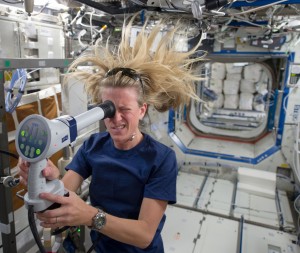Here’s a unique and novel opportunity for ophthalmology companies.
The National Space Biomedical Research Institute (NSBRI) and the Center for Space Medicine at Baylor College of Medicine have launched the Vision for Mars Challenge.
What’s being tackled here is addressing a key space biomedical issue. That is, after returning from space missions, some astronauts experience eye problems and changes to their vision.
The Challenge is meant to help identify and advance medical technologies for ocular health in space through collaboration and
funding support.
New space syndrome
To help NASA better understand this new syndrome, clinical and business leaders within the ophthalmology sector are being asked
to help identify cutting-edge, space-appropriate diagnostic approaches and devices.
“We don’t understand the effects of reduced gravity on the optic nerve,” said Tim Stout, professor and chair of ophthalmology at
Baylor. “However, we have some evidence that long term spaceflight can result in visual field defects in astronauts,” he said in an NSBRI press statement.
The next step is bringing the ophthalmologists and scientists needed to answer these questions to the same table.
Disruptive medical technologies
The Vision for Mars Challenge leverages an ongoing successful Industry Forum initiative called Space Medical and Related
Technologies Commercialization Assistance Program or (SMARTCAP,) which identifies and funds small U.S.-based companies developing disruptive medical technologies.
At least three SMARTCAP grants in this cycle will be awarded to companies with innovative ophthalmology products.
Key Dates for the Vision for Mars Plan:
November 6, 2014 – Vision for Mars Challenge conference in Houston, TX.
December 4, 2014 – Application Deadline for SMARTCAP – Vision for Mars Challenge.
February, 2015 – Winners of the SMARTCAP Vision for Mars Challenge announced.
Grant recipients must secure a 100-percent match in funding. This leveraging of federal funding actively fosters public-private collaborations and partnerships.
For full submission guidelines and additional information regarding SMARTCAP, go to:
By Leonard David

